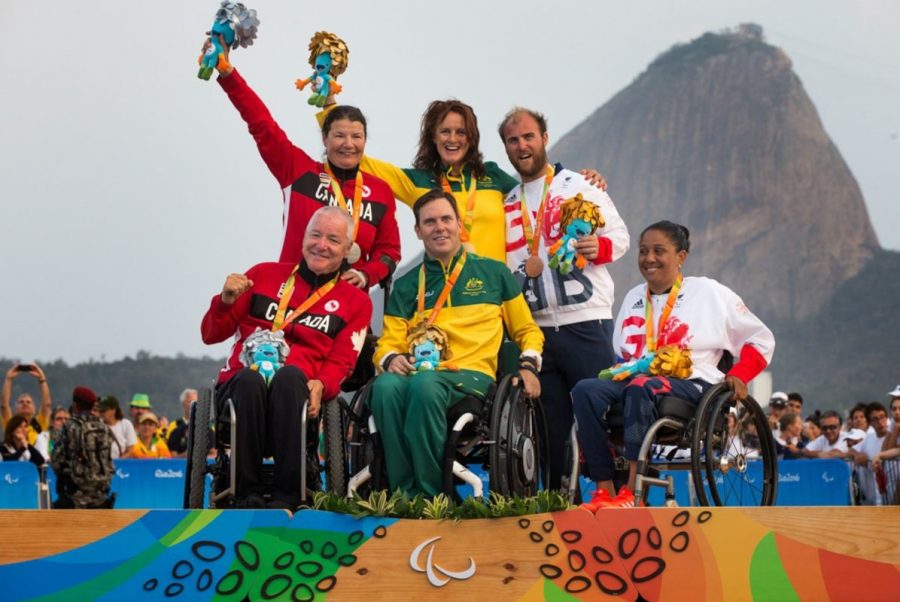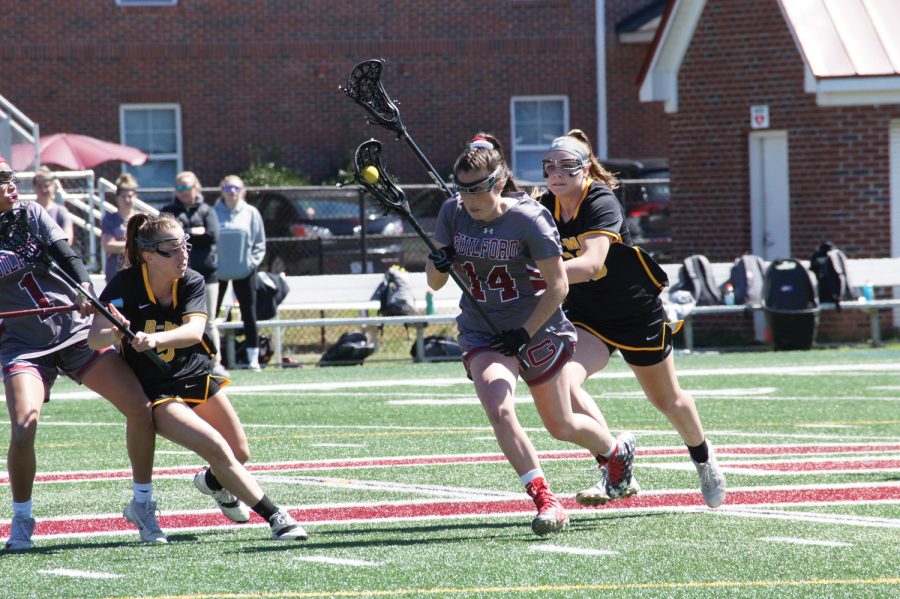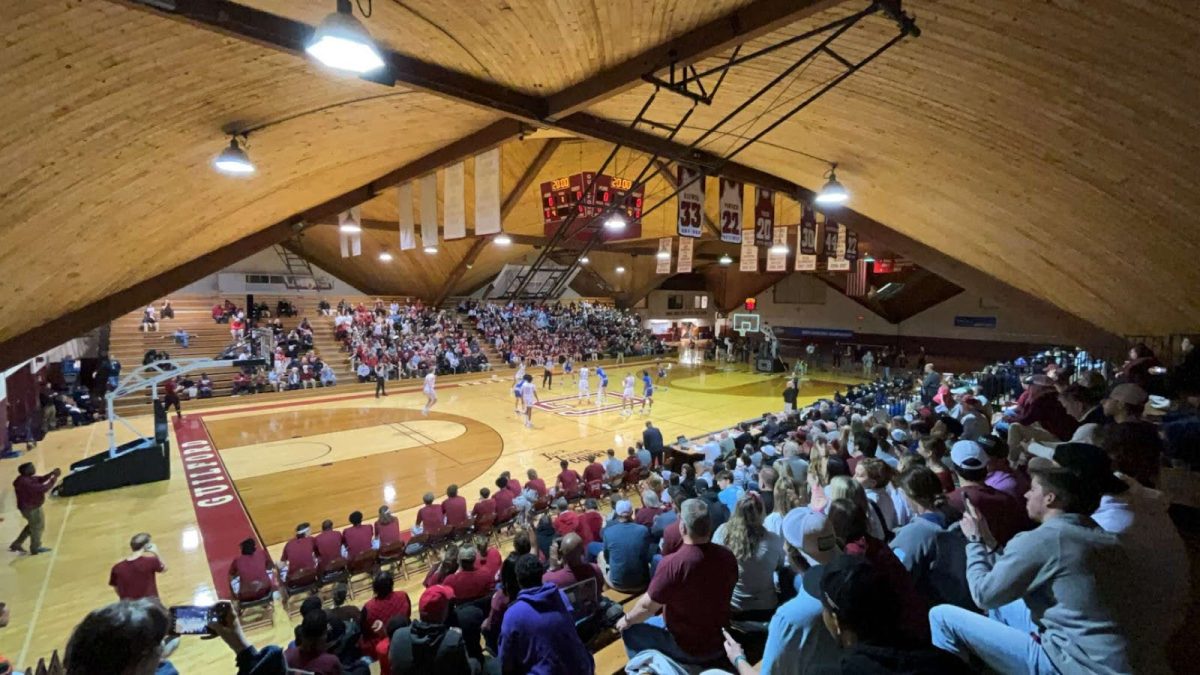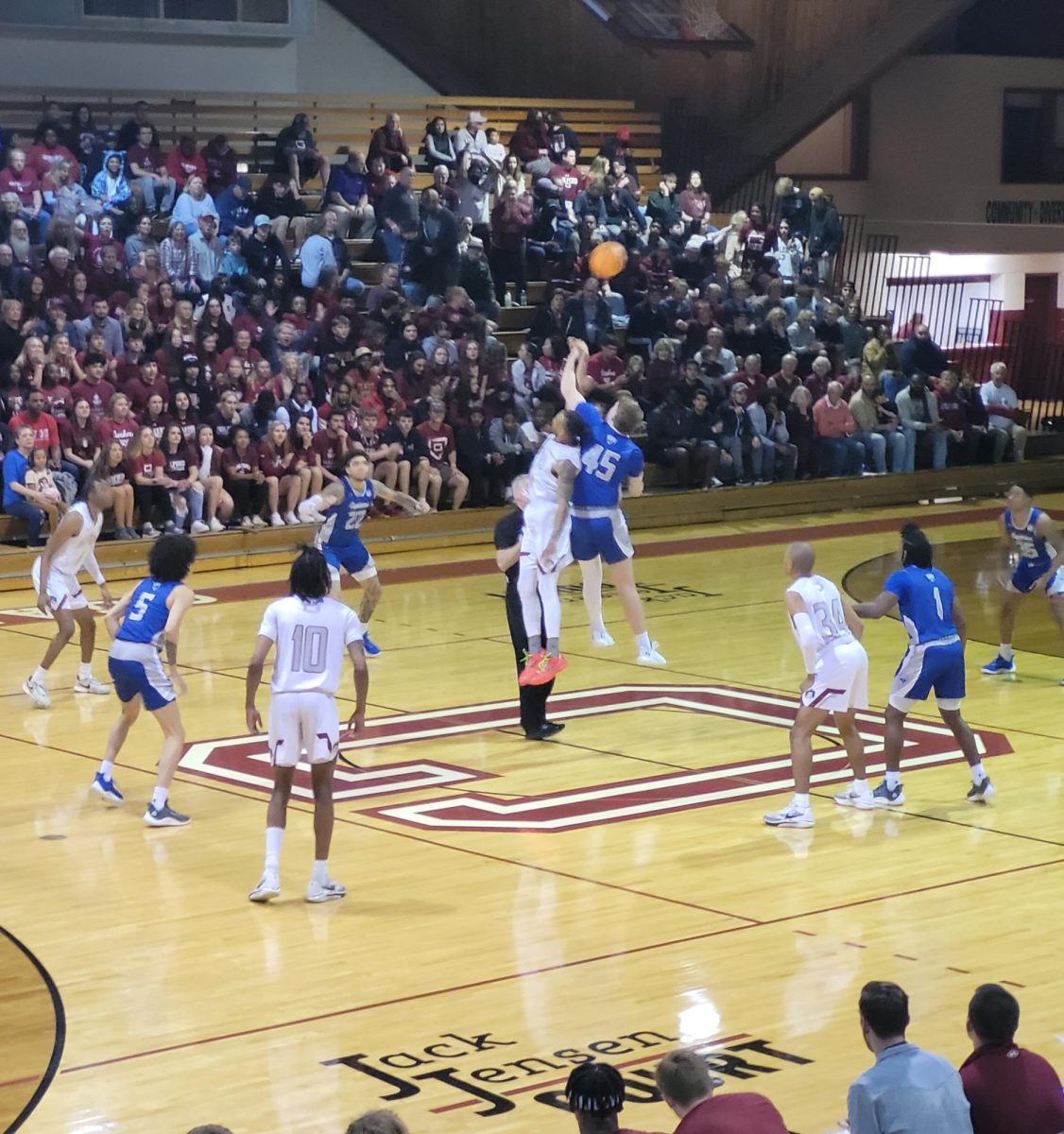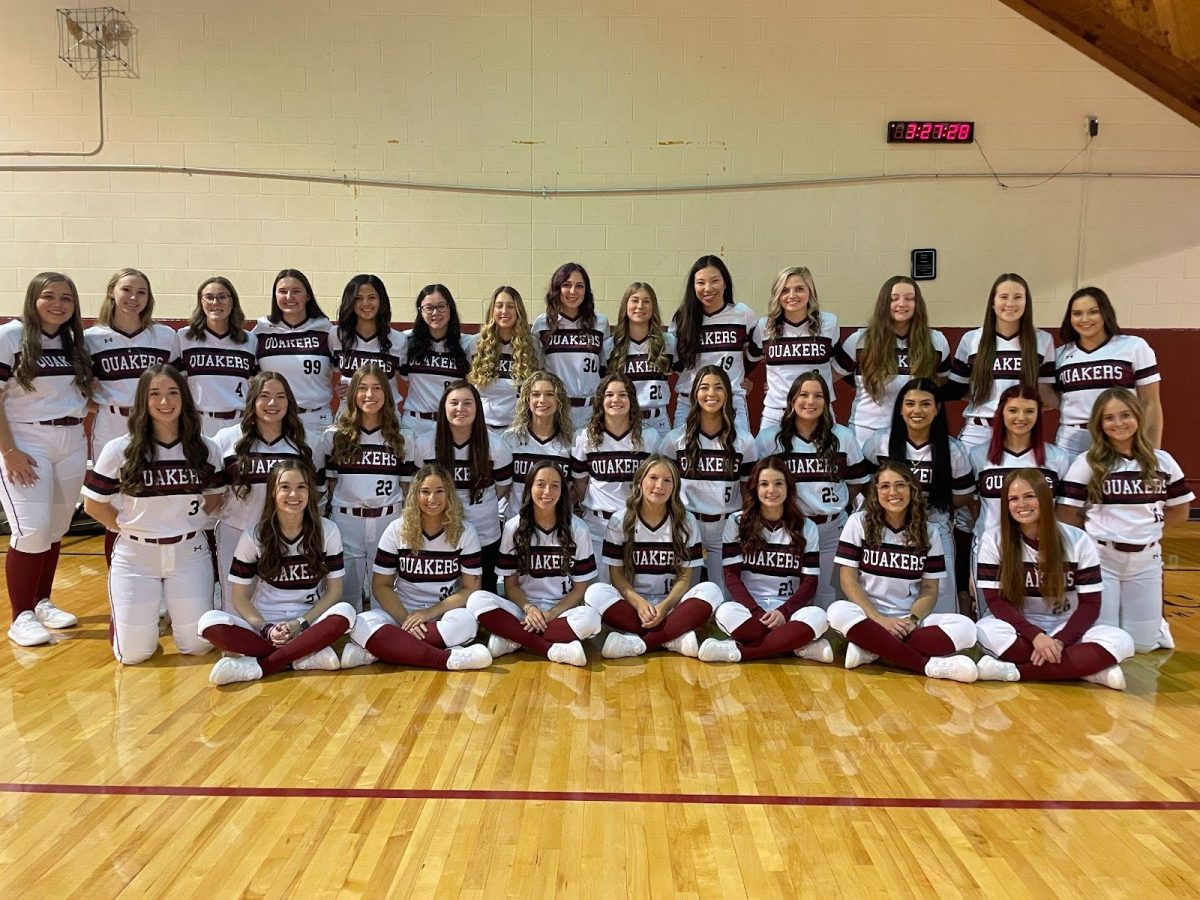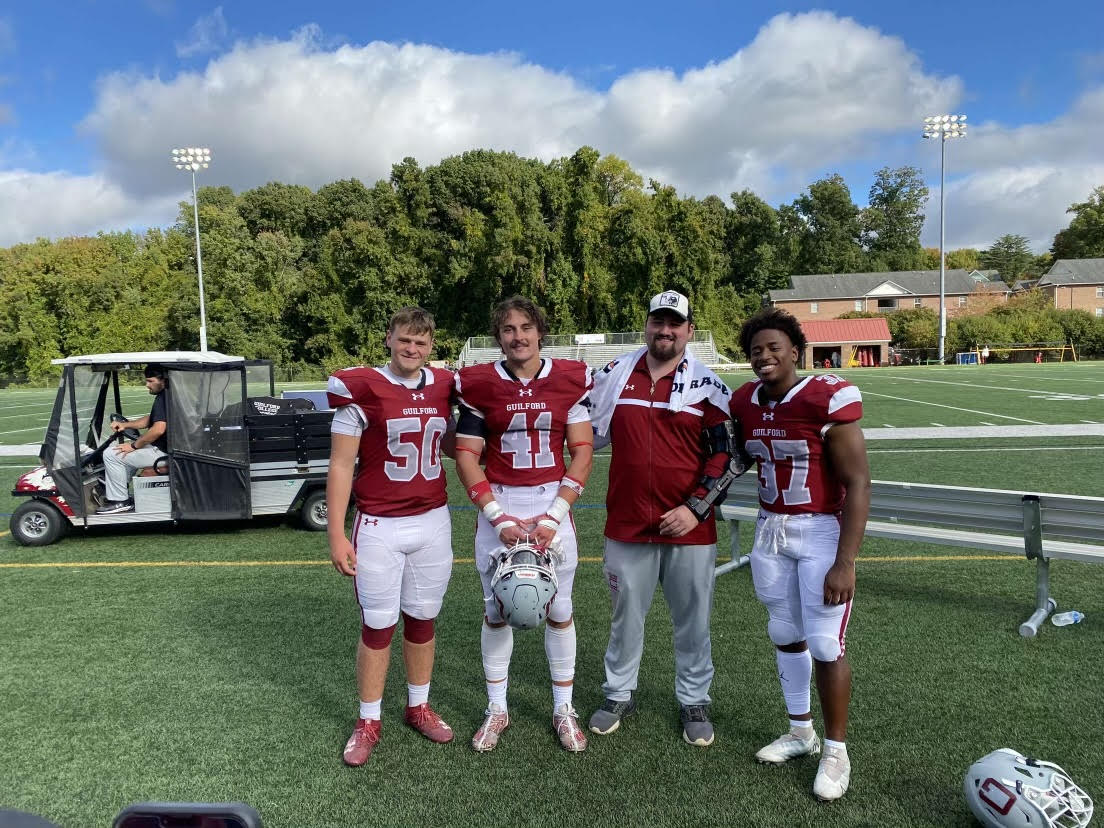On Sept. 15, Algerian middle-distance runner Abdellatif Baka finished the T13 1500m race of the Paralympics in 3:48.29 seconds. The visually impaired athlete not only secured gold for his country but, alongside three others, finished in a shorter time than the winner of the same event in the Rio Olympics.
What other remarkable accomplishments did Paralympic competitors achieve this year?
From Sept. 7 to Sept. 18, disabled athletes competed in the 2016 Rio de Janeiro Paralympics. With the exception of sighted guides, each participant had a certain physical or mental disability that included impaired muscle power, impaired passive range of movement, limb deficiency, leg length difference, short stature, hypertonia, ataxia, athetosis, visual impairment and mental disability.
“When I think about the Paralympics, I think of the Olympics for people who have physical or mental disabilities but also have great abilities in sports,” said sophomore Caitlyn Councilman. “For example, they might not have an arm, but they might be (amazing) at archery.”
Each of the events were divided into categories based on the type of disability. This is so visually impaired runners, T11-T13, did not have to go head to head with runners that have cerebral palsy, T31-T38, for example. For a full list of classifications, see the BBC article “An A-Z of Paralympic sport classifications.”
Day 1
Brazilian swimmer Daniel Dias, who has malformed upper and lower limbs, won the 200m freestyle S5 gold, earning his 16th Paralympic medal. British cyclist Sarah Storey, who is unable to use her left hand, became the most decorated British female Paralympian in history after winning gold in the C5 3000m individual pursuit.
Day 2
Visually impaired Irish sprinter Jason Smyth mimicked Usain’s Bolt “triple-triple,” winning his third gold medal in the T13 100m dash. After smashing the T11 100m world record, blind British sprinter Libby Clegg was disqualified for having her guide pull her along. After an appeal by the team, she was requalified and her record reinstated.
Day 3
Mohamad Ridzuan Mohamad Puzi, who has a coordination impairment, set a new T36 100m Paralympic record, earning Malaysia’s first ever Paralympic gold. Great Britain’s Andy Lewis won gold with only one leg in the men’s PT2 paratriathlon, the first time the event was featured in the Paralympics.
Day 4
British rower Rachel Morris, who has no use of her legs, took home three gold medals in arm-only single sculls, mixed double sculls and mixed coxed four. Team USA’s David Brown became the first fully blind man to run the 100m in less than 11 seconds, winning the T11 gold medal for that event.
Day 5
By day five, the 2016 Paralympics became the second most successful games in terms of ticket sales, only behind the 2012’s London Paralympics. Shot putter Deepa Malik, who has weakness in one hand, became the first Indian woman to win a medal at the Paralympics, getting silver in the F53 class. Bose Omolayo from Nigeria, who is impaired in the lower limbs, beat her own world record, winning gold in the -79kg powerlifting event.
Belgian sprinter Marieke Vervoort, who suffers from a painful degenerative disease, raised a controversy over euthanasia, after rumors surfaced that she would take her own life after the Rio Paralympics.
Day 6
Team USA picked up gold, silver and bronze in the T54, wheelchair-bound, 1500m race. A doubles tennis match between Israel’s Itai Erenlib and Shraga Weinberg and Great Britain’s Jamie Burdekin and Andy Lapthorne lasted almost four and half hours, making it the longest wheelchair tennis match in history.
Day 7
Iranian Siamand Rahman, who is impaired in the lower limbs, lifted 310kg in the +107kg category, shattering the previously unmatched 300kg world record. Former Italian Formula One driver Alex Zanardi won a para-cycling gold medal on the 15th anniversary of the crash that left his car and body split in half.
Day 8
Denmark’s Daniel Wagner and Great Britain’s Richard Whitehead were both awarded a silver medal after they crossed the finish line .06 seconds behind Australian amputee sprinter Scott Reardon. Jeanette Chippington gave the United Kingdom its 100th medal of the Paralympics and achieved gold in the first ever sprint canoe event of the games.
Day 9
Great Britan’s Paul Blake won a gold medal in the T36 400m for athletes with coordination issues like cerebral palsy. The U.S. team won gold in wheelchair basketball, beating Germany 62-45 in the final.
Day 10
Daniel Abraham Gebru of the Netherlands finished first in the C4-5 road race for athletes with upper or lower limb impairments after race leaders Yehor Dementyev of Ukraine and Alistair Donohoe of Australia crashed in front of the finish line. Iranian para-cyclist Bahman Golbarnezhad died after suffering a heart attack during a crash in the men’s C4-5 road race.
Day 11
Team Iran, featuring the second tallest man in the world, ousted Bosnia and Herzegovina in sitting volleyball, taking home the gold medal. Australia beat the United States 59-58 in wheelchair rugby, commonly referred to as “Murderball,” for its violent nature.
Despite these amazing achievements, the Paralympic Games were nowhere as popular as the Olympic Games. Many want this fact to change.
“More people need to watch the Paralympics,” said sophomore Mikayla Jones. “(Competing in the Paralympics) is a hard thing to do. It involves a lot of teamwork, and I feel that the value of it has depreciated over time.”
Some do not even know whether one can watch it on television, as very few channels stream the games and few advertisements for it exist.
“It doesn’t get as much publicity as the Olympic Games and maybe it should,” said sophomore Brianna Randolph. “I don’t know if they even broadcast it on TV or if it is just on the internet. I think it would be cool if it got the same publicity as the Olympic Games would.”
Overall, the Rio Paralympics showed extraordinary feats and accomplishments and are bound to rise in popularity over time.

